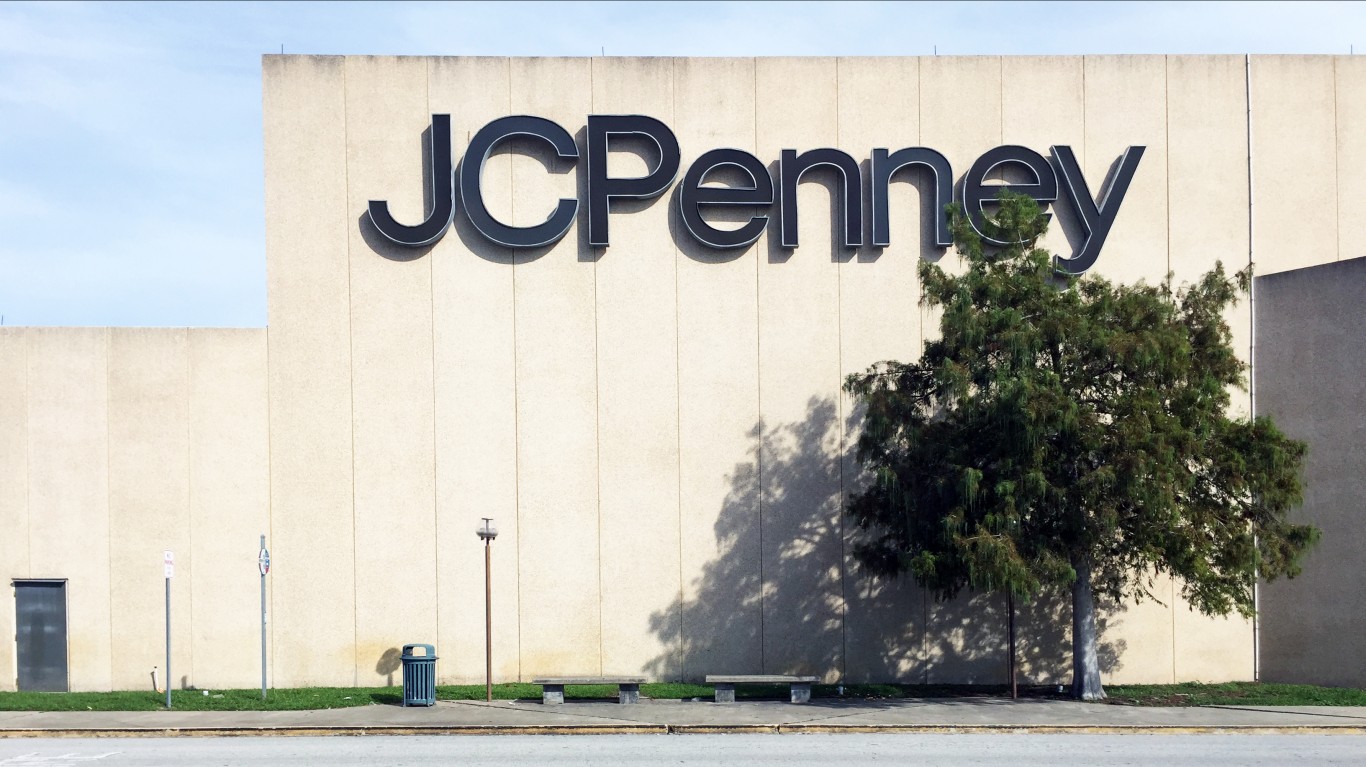
High-end department store chain Neiman Marcus has not yet filed for bankruptcy protection, even though many people think it has. Earlier reports suggested that the Dallas-based retailer would file sometime this week, after missing an interest payment last week.
At the other end of the department store spectrum, J.C. Penney Co. Inc. (NYSE: JCP) continues to mull a bankruptcy filing after missing an interest payment due in early April. A decision is expected by the end of the month.
That a luxury department store operator and a mid-market store operator both find themselves in the same fix testifies to the destruction wrought by the COVID-19 pandemic and the stay-at-home orders that have caused retailers to close stores and furlough or lay off staff.
Just like the coronavirus affects people weakened by chronic health problems, the pandemic also has a more profound effect on companies that are financially weak.
Will J.C. Penney Get Any Relief From the $2.2 Trillion CARES Act
The primary argument supporting an infusion of cash into weak retailers like Neiman Marcus and J.C. Penney is that they employ so many people that if they shut down, millions of Americans will be thrown out of work right when they are most in need of a job.
From the point of view of the U.S. Treasury and the Federal Reserve, though, how likely is it that the financially weakest retailers can repay federal financing? After all, both Neiman Marcus and J.C. Penney already have missed one interest payment.
Boston Federal Reserve President Eric Rosengren has commented that the central bank’s commercial paper funding facility and the primary market corporate credit (PMCC) facility won’t help every company. According to Rosengren, firms with highly leveraged balance sheets will not get much help from either program.
Retailers whose bond ratings are not deemed to be investment grade are most likely to be left out. That list includes J.C. Penney, Neiman Marcus and a long list of other struggling retailers, such as Macy’s Inc. (NYSE: M), Gap Inc. (NYSE: GPS) and Ascena Retail Group Inc. (NASDAQ: ASNA).
The Fed is legally obligated to offer funding only to those entities with the ability to repay the loans. The Treasury could make riskier bets and likely will simply help stem the massive job losses that could follow the failures of a number of big retailers.
But Brick-and-Mortar Stores Sit on Valuable Real Estate, Right?
Retailers with large real estate holdings could offer to secure federal loans with their owned properties. The catch is figuring out what the stores are worth.
When S&P Global recently lowered Macy’s debt rating to junk status, the ratings firm noted that Macy’s has a “long history of acquisitions and expansion has saddled it with excess stores as shoppers’ shifting preferences move away from mall-based locations and toward more value-oriented offerings.” In industry parlance, Macy’s was overstored. All 775 of the company’s stores are mortgage-free.
J.C. Penney cannot make the same claim. In an earlier report on the company, we noted that of J.C. Penny’s 857 stores, 272 are already encumbered while 350 are not. An appraisal of these 622 properties showed that the value of the unencumbered properties was nearly $1.4 billion if the properties were operating (the so-called lit value) and less than $700 million if closed (the “dark” value). The other important factor about J.C. Penney’s real estate values is that the appraisals were done in 2018.
According to retail analysts at Green Street Advisors, the unlevered equity value of mall real estate has dropped by 27% since February of this year. Even before the coronavirus pandemic, the firm expected roughly half of mall-based department stores to close within five years.
By closing stores to conserve cash, J.C. Penney lowers the value of the real estate asset by around 50%. Yet, if it doesn’t close the stores, operating costs will eat up more of the revenues and conserving cash is impossible.
Online Sales Are Not Likely to Save J.C. Penney
After closing its stores for the last two weeks of March, Macy’s said it lost the majority of its sales. J.C. Penney can have done no better. It generated only about 20% of fiscal year 2019 revenues of $10.7 billion online, so expecting the retailer to boost revenues by a factor of four is just wishful thinking.
In fact, e-commerce prices have been slashed by as much as 40% in an effort by retailers to retain some semblance of customer loyalty while consumers are staying home.
Many brands have taken the opportunity presented by the COVID-19 outbreak to push their brands through their own online stores. A skincare brand called Peace Out once drove traffic to Sephora’s 1,100 retail shops and dedicated in-store shops at J.C. Penney’s stores. Peace Out loses its Sephora walk-up sales but retakes control of its own brand and revenue stream while still maintaining sales at Sephora’s website. Who knows when or if J.C. Penney stores will reopen and the Sephora shops with them.
What Does J.C. Penney Have to Look Forward To?
J.C. Penney won’t report first-quarter results until late next month. Analysts are not expecting much. The quarterly net loss is currently pegged at $1.12 per share, with sales totaling $1.38 billion. For the full year, J.C. Penney is expected to post a loss of $2.09 per share on sales of $8.88 billion.
In late January, the company received a delisting notice from the New York Stock Exchange. J.C. Penney has six months to raise its share price back above $1.00 a share, a level the shares haven’t seen since mid-January.
The company’s most immediate concern, though, has to be what to do about its next interest payment due around May 1. J.C. Penney missed a scheduled debt repayment of $12 million due April 15 and has a $105 million bond repayment coming due in June. The company’s annual interest expenses total around $300 million, and debt maturing in 2023 totals more than $2 billion.
A group of first- and second-lien holders reportedly has offered to lend the company $300 million secured by real estate not already encumbered by other debt. That’s less than half the dark value of J.C. Penney’s unencumbered real estate. A steep price, to be sure, but maybe the only game in town if J.C. Penney wants to avoid bankruptcy.
Travel Cards Are Getting Too Good To Ignore (sponsored)
Credit card companies are pulling out all the stops, with the issuers are offering insane travel rewards and perks.
We’re talking huge sign-up bonuses, points on every purchase, and benefits like lounge access, travel credits, and free hotel nights. For travelers, these rewards can add up to thousands of dollars in flights, upgrades, and luxury experiences every year.
It’s like getting paid to travel — and it’s available to qualified borrowers who know where to look.
We’ve rounded up some of the best travel credit cards on the market. Click here to see the list. Don’t miss these offers — they won’t be this good forever.
Thank you for reading! Have some feedback for us?
Contact the 24/7 Wall St. editorial team.
 24/7 Wall St.
24/7 Wall St.


